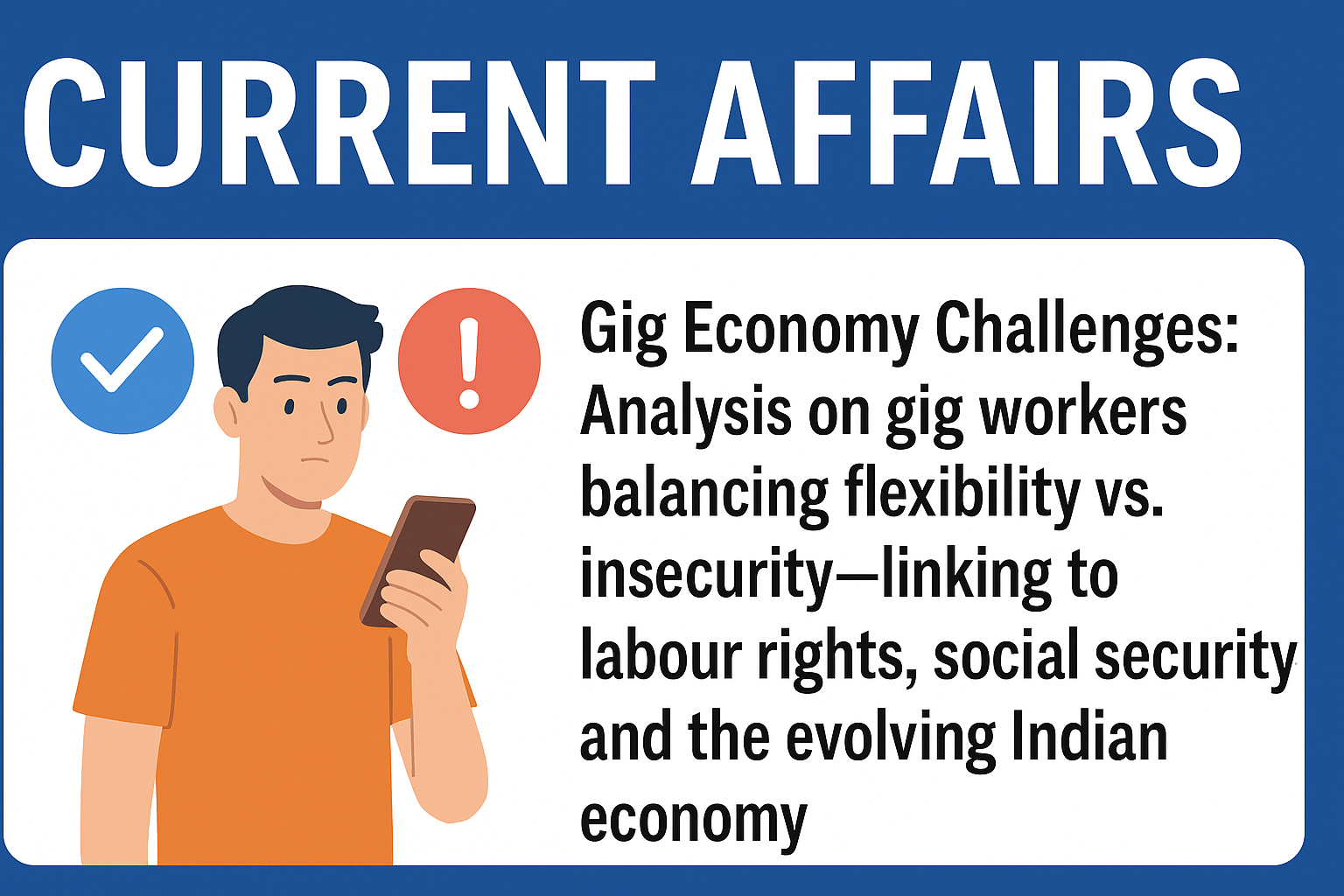Analysis of Microfinance and Rural Empowerment Initiatives
Introduction Microfinance has emerged as a vital tool for rural empowerment...

The gig economy in India, driven by platforms like Zomato, Ola, Swiggy, and Urban Company, has expanded rapidly post-2016, especially after the pandemic. While it offers flexibility and entrepreneurial opportunity, it is now under scrutiny due to rising concerns over insecurity, absence of social protection, and lack of labour rights.
| Aspect | Challenge |
|---|---|
| Flexibility vs. Insecurity | Gig workers can choose their hours but face job unpredictability and lack of benefits. |
| Social Security Deficit | No EPF, ESIC, or maternity leave; they fall outside the purview of the Factories Act or EPF Act. |
| No Employment Recognition | They are classified as partners or independent contractors, not employees. |
| Algorithmic Control | App-based rating systems influence work allotment, often leading to exploitation. |
| Income Instability | No minimum wage guarantee or floor earnings. Earnings fluctuate with demand. |
| Gender & Accessibility | Limited participation of women due to safety, lack of child care support, and digital gaps. |
| Policy | Feature |
|---|---|
| Code on Social Security, 2020 | Recognizes gig & platform workers as a category. Proposes universal social security. |
| e-Shram Portal (2021) | Registers unorganised workers, including gig workers, with access to accident insurance. |
| Platform-Based Social Security Schemes (Proposed) | Public-private model for health and pension. Yet to be operationalized. |
The gig economy reflects the future of work, but its long-term sustainability depends on ensuring that labour flexibility does not come at the cost of fundamental rights. For India to achieve inclusive growth, labour policy reform, platform accountability, and universal social security are indispensable.
“In the absence of regulatory clarity, gig work in India remains a grey zone between employment and entrepreneurship.”
(Critically examine with reference to labour code reforms and welfare gaps – GS II/GS III)
0 responses on "Gig Economy Challenges: Balancing Flexibility vs. Insecurity."